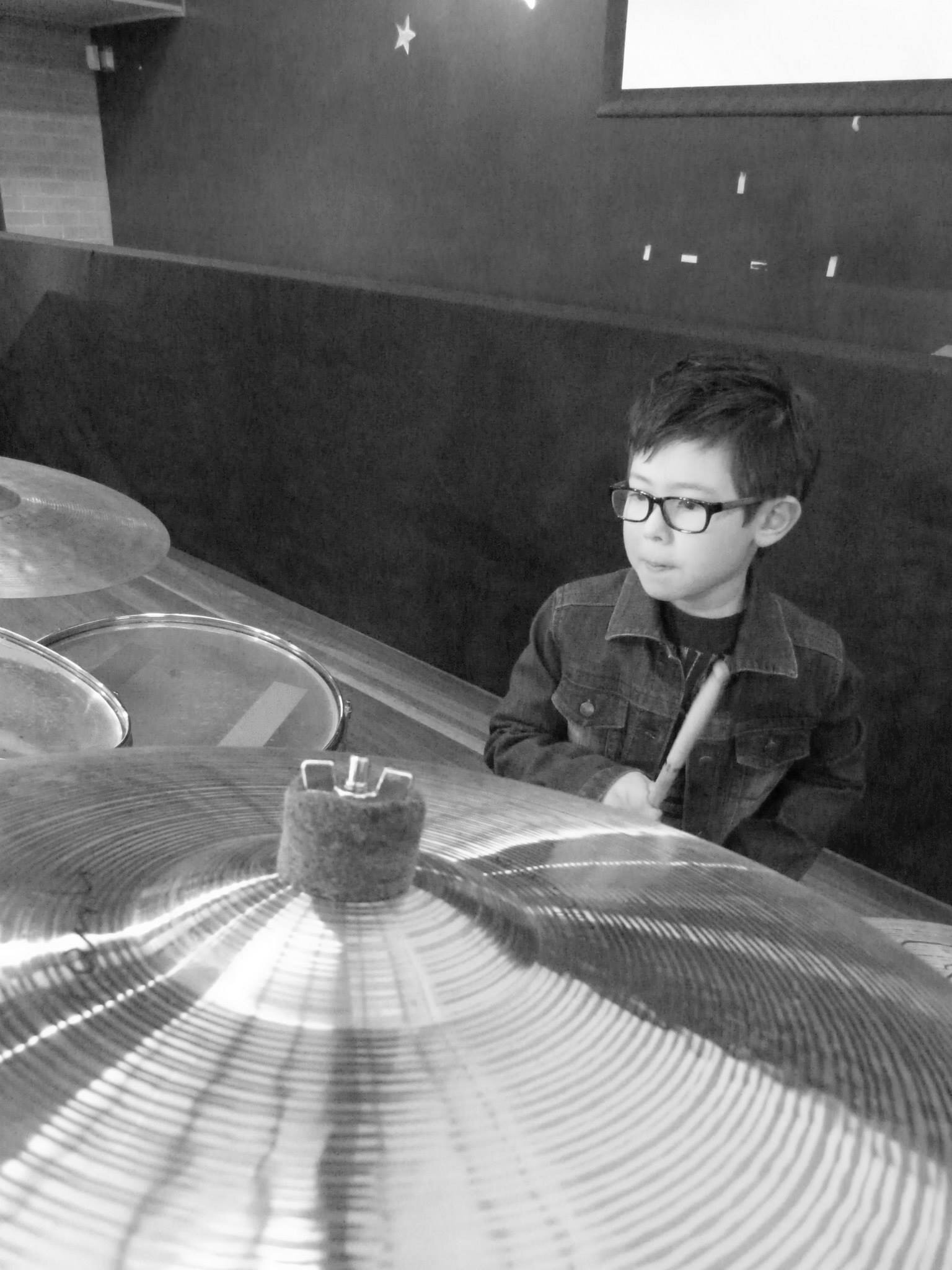Are the drums easy to learn?
This is a question that every beginner drummer or parent considering buying a drum set for their child will inevitably ask themselves. It is also pretty common for parents to be considering the other instruments for their child, namely the guitar, piano, bass, ukelele, so how do the drums compare?
It is often argued by musicians that the drums are the easiest to learn and hardest to master. For a young child, this is also quite true, as within a fairly short time frame (2 to 4 weeks), most children will be able to do a basic groove (1 and 2 and 3 and 4). Like with any instrument though, drummers need to be lifelong learners. They will never stop experimenting with sounds, technology, or genres. Sometimes, this will drive you nuts.
You will read other sites that profess that anyone can pick up a basic drum set and with be playing along to ACDC songs in less than 30 minutes. This is crap. Ignore it. Sure you may think you are playing in time, or hitting the groove, but make no mistake, it takes years to become the backbone of a band. Kids will take longer, and it is unrealistic to think that your child who is still developing their core motor skills, and hand eye coordination, will be able to pick up the sticks and play the beat in one lesson, or even in one year. But, the drums ARE incredibly fun. I’ve not met a single person who hasn’t sat on the throne with an ear to ear smile. Kids love the drums even more, after all they are big and noisy! There is a primal attachment to drums, and for thousands of years, drumming has been a part of what it means to be human! It is for this reason, that my son has been able to keep up with lessons, practice, and the relentless drilling of rudiments and grooves. Yours can too!
John at his first real gig
Learning the Drums
The most important thing any new drummer, especially children, can do is take it slow. I know every drum teacher and musician in the universe will tell you that but it’s for a really good reason - it results in bad habits that are REALLY hard to fix.
That being said, you need to keep it fun for kids. DONT start them on playing with a metronome from day 1. Metronomes kill fun. Spend that time making sure they are holding the sticks properly, and hitting symbols correctly (yes there is a proper way to hit a symbol). Make sure your teacher starts with rudiments (they make great warm ups). Also ensure that your child is counting out a loud! You want to hear them count the beats (1 and 2 and 3 and 4). All good drummers do this in their head when learning a new groove or complex fill. These basics prevent bad habits and injury.
Make sure the teacher is up to the task. Do not just choose a teacher because they are close, or a family friend. Kids get very attached to their teachers, so make sure you pick one that can support them all the way until at least high school. We lucked out with our teacher, and know that our son will be able to keep learning from him for many more years to come. Make sure yours can too.
Note: For adults, or older children who have been playing for a while, sure metronome work is important - but not for a child under the age of 7 - don’t let their teacher start with this.
One of the most important things you can do to support your new drummer, is to let them experiment with sounds. We let my son bash pretty much anything he wanted - so he could learn how different materials, shapes, weights, or where/how an object was hit could change the way sound.
You should also listen to lots of music together, get them to talk about the sounds they hear, or the drums that are being hit. Listen to lots of different genres. In our house we never listened to childrens’ music, but rather the entire back catalog of every 90’s grunge band we could find, followed by blues, jaz, metal, and everything in-between. Let your child explore what music genres they like, and be supportive when they change. My son started as a bit of a head banger, but now he passionately plays jazz, and funk.
Your child will also develop a whole new vocabulary pretty quickly, especially if you have a good teacher. Let them explain to you what they hear, using their ever developing lexicon. Encourage your child’s teacher(s) to speak to them using the correct language, and to always have high expectations that your child will do the same in return. My son (11) has at least 20 different words to describe the sound of a snare drum now, and that is entirely because of his teacher.
John at around age 6


